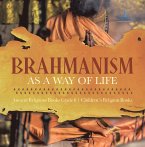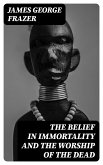In "Seekers after God," F. W. Farrar embarks on a profound exploration of the relationship between humanity and divinity, weaving together theological insights with compelling narratives from various religious traditions. This work is marked by an eloquent prose style that elevates spiritual discourse to an art form, reflecting Farrar's commitment to intellectual rigor and heartfelt piety. Situated within the context of late 19th-century Victorian thought, the book contemplates the universal quest for meaning and connection with the divine, drawing upon an array of historical and contemporary figures who have sought God through different paths. F. W. Farrar was an esteemed Anglican cleric, theologian, and author whose expansive literary career was marked by a deep interest in the intersection of faith and reason. Known for his ability to engage with diverse religious perspectives, Farrar's own spiritual journey and dedication to illuminating complex theological concepts informed his writing. His background as a scholar of both classical literature and religious texts uniquely positioned him to present a broad synthesis of ideas, making the book a testament to his visionary insight into human spirituality. "Seekers after God" is highly recommended for any reader yearning for an enriching examination of spirituality that transcends religious boundaries. With its careful synthesis of narratives and scholarly analysis, this work appeals to those interested in the deeper questions of existence, providing profound reflections that resonate with both the heart and mind.
Dieser Download kann aus rechtlichen Gründen nur mit Rechnungsadresse in A, B, BG, CY, CZ, D, DK, EW, E, FIN, F, GR, H, IRL, I, LT, L, LR, M, NL, PL, P, R, S, SLO, SK ausgeliefert werden.









